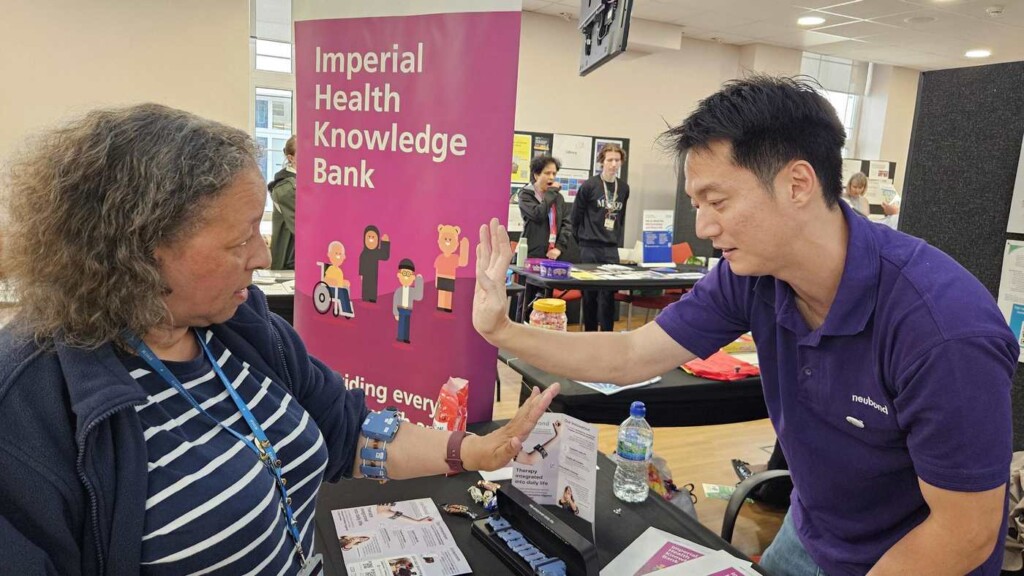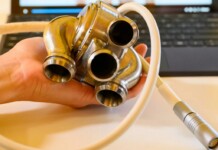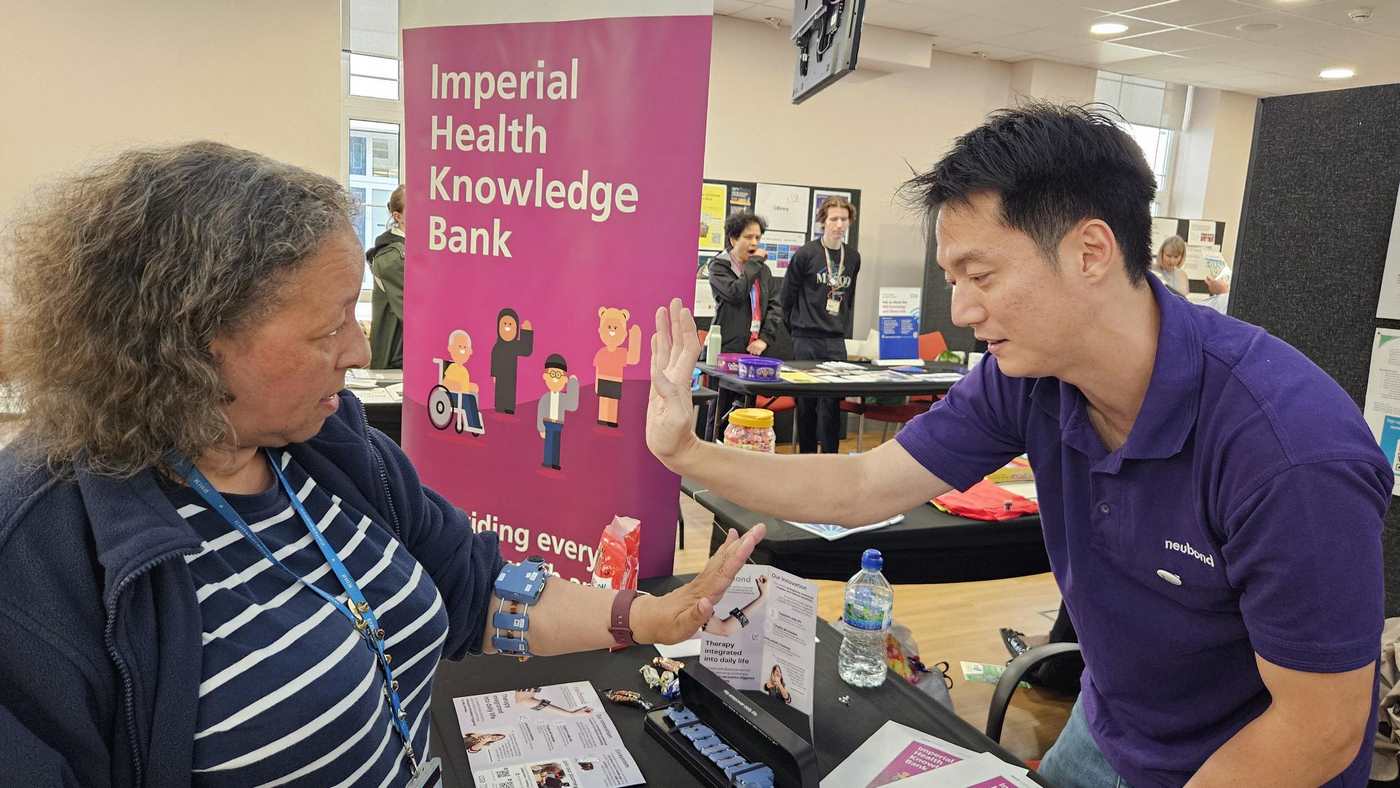
A discreet and flexible armband made of electrodes has been found in a small study of stroke patients to aid in restoring flexibility in their disabled arms.
Manufactured by a startup called Neubond the device is intended to seamlessly integrate into daily routines, allowing patients with impaired motor functions to maximize time spent performing rehabilitation activities.
Neubond, led by co-founders Jumpei Kashiwakura and Patrick Sagastegui Alva, has been working with patients from a stroke support group in London near the Imperial College London campus to hone their device. The results were published in a recent paper in the journal NYU Scholars.
The prototype armband is worn around the upper forearm and embedded with electrodes that detect muscle activation commands and stimulate nerves to help restore their connection with the brain.
Co-founder Kashiwakura says the device works by promoting neuroplasticity, or the reorganization of the brain around new neural pathways to regain control of the limb.
After just 8 sessions, Reuters reports, Lisa Vincent’s left arm has gone from completely rigid to being able to bend and flex with much more control.
“My granddaughter, she’s 8 months old, and she was only allowed to sit on my lap because I couldn’t hold her. But 3 weeks ago my daughter put her on my lap and I held her with this arm because I felt in control of the wrist and I was confidant enough,” Vincent told Reuters.
CONTINUE EXPLORING THIS TOPIC: Chef Returns to Kitchen Thanks to Floating Seat Invented After a Motorcycle Injury Made Him Immobile (WATCH)
“I cried myself to sleep that night. It was amazing to be able to do that.”
Neubond came in as one of 5 finalists at the Imperial College’s Venture Catalyst Challenge (VCC), an entrepreneurial endeavor that helps alumni and early-stage business ventures to develop their innovative ideas for eventual commercialization.
OTHER AWESOME WEARABLES: ‘Wearable Muscles’ Restore Mobility in Those Who Have Trouble Moving Their Arms
VCC takes 25 teams through a 3-month program of coaching, meetings with experts, workshops, and pitch training, before the five finalists compete for a Grand Prize of £20,000. The total prize pool is £100,000, making it the largest university contest focused on entrepreneurialism in the UK.
WATCH the story below from Reuters…
SHARE This Wonderful Invention And Those Like Ms. Vincent Who It’s Touched…




















